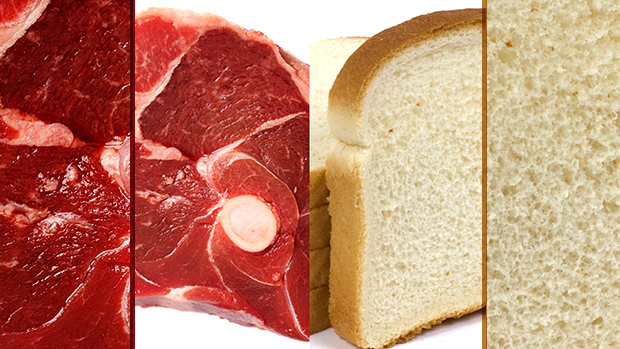The Study That Was Ignored
In 2015, the journal "Cell Metabolism" published a study that should have been a game changer. Quite simply, the paper reported that contrary to current belief, restricting dietary fat can lead to a greater loss of body fat than restricting carbohydrates.
But hardly anyone took note of it. Why, I'm not sure, but I'm guessing that this revelation was kind of inconvenient. It made people who'd been chanting the low-carb mantra over and over again for years – especially the keto people – get all itchy.
It's like the time when you espied your chain-smoking grandma accidentally dropping a cigarette ash the length of your pinky finger into the cake batter. Rather than start over, she coughed nervously, looked away, and quickly stirred the ashes into the batter and hoped no one would ever notice.
But the study in question is a big, Churchill-cigar sized ash that's too big and gnarly to hide.
Scientists from the US National Institutes of Health, led by Dr. Kevin Hall, recruited 19 obese men and confined them to a metabolic ward for a pair of two-week periods. Everything they ate was carefully measured and allocated.
During the first two-week period, the men had their calories reduced by 30% through carb-restriction alone (not enough to induce ketosis, but low all the same). During the second two-week period, the conditions were reversed and the men reduced their calories through fat-restriction. Regardless of which nutrient was restricted, calorie intake remained the same. Each day, the researchers tracked how much body fat the participants burned.
Those who had their dietary fat restricted lost 89 grams a day of body fat while those that had their dietary carbs restricted lost 53 grams per day.
And, in what amounts to a sharp, crystallized-sugar stick in the eye of ketogenic diet freaks, the researchers found that the role insulin played in the fat loss wasn't that big a deal.
True, the low-carb diet was less insulinogenic in general (and thus led to a greater amount of fat being burned), but the reduced fat diet resulted in more fat loss anyways, which puts a chink in the theory that high insulin output from high carbs results in less body fat loss and more body fat storage.
There are two potential problems with this study. For one, they only had 19 participants, but you still have to give the researchers some credit because putting 19 obese guys into a "metabolic kitchen" where everything they eat is monitored is pricey.
Secondly, the researchers did some mathematical projections on both the carb-restricted and fat-restricted dieters and tried to figure out what would have happened if they'd continued the study for 6 months. They found that following the fat-restricted diet would only have led to modestly better fat loss (about 6 pounds). They addressed it this way:
"While the present study demonstrated the theoretical possibility that isocaloric diets differing in carbohydrate and fat can result in differing body fat losses, the body acts to minimize such differences."
But that smacks of nit-pickery, and six pounds is a fairly big tub of goo. If you give this study any credence at all (and you should), you might reconsider your stance on dietary carbs.
You might also want to forget about hopping on the wobbly-wheeled keto bandwagon. Besides the fact that its whole premise (almost no carbs in the diet, thus forcing the body to burn ketones) might be wrong, the keto diet stinks for athletes. It mucks up high intensity performance and resultant recovery, and it presents about the worst possible metabolic condition for muscle growth.
In the end, what matters most to fat loss (and gain, of course) may well be what old-time, enema-prescribing dietitians believed: Calories matter more than specific nutrients.
This study isn't trying to suggest that low-carb diets don't work. They clearly do... but so does just about any diet where you're forced to think about what you're eating. Still, you have to wonder about why they work, since the results of this study imply that insulin doesn't play a role, at least as far as carbohydrates are concerned.
But that doesn't mean you shouldn't try to do everything you can to increase insulin sensitivity, anyhow. The more you do, the easier it is for you to put on muscle and that fact alone contributes to a lower body fat in general (aside from having a host of various health benefits at the cellular level).
In the meantime, you might re-think making carbs the dietary black sheep of the family.
- Hall KD et al. Calorie for Calorie, Dietary Fat Restriction Results in More Body Fat Loss than Carbohydrate Restriction in People with Obesity. Cell Metab. 2015 Sep 1;22(3):427-436. PMC.





